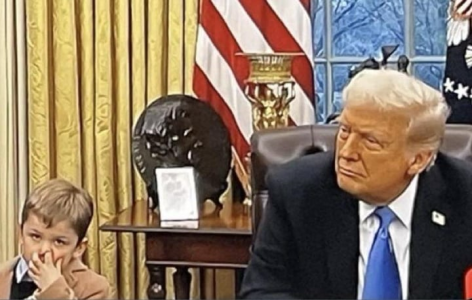someguy
Well-known member
I think we agree on the basic textbook definition of DEI - welcome people from all backgrounds and give a little nudge to help certain groups, right? I think the difference we see is how it's implemented.I will reply but past experience has shown me it's to no avail, I'll try to keep it short:
Based on the profile of the poster and the contents of their posts, they are not a child. You can find other editorials and op ed pieces that share their sentiment but I wanted to just cut and paste rather than try to navigate an ad riddled online article.
Like other in this thread, I have never said DEI is ignorant of merit. Again they have to be AS qualified if not more so. The problem is merit is ignored due to bias.
Everything can be strawman. Racism exists to varying degrees in almost everyone... the problem is that leads to bias... see #1.
Why do you keep saying it's more discrimination... it's less. And much of society is not merit-based.. that's the fallacy. The best qualified are not always the majority group. This is also why I said it cuts both ways... in a minority-owned or female-owned business... if a white male is the most qualified, the premise of DEI is that they should be hired/promoted.
Not sure if you read their final point but the issue here isn't DEI, it's the policies organizations try to enact or are forced upon them. Just like EV mandates, I don't feel it should forced but holistically encouraged. But because as everyone says "Life's a B" or "Humans will error", this is why policies are made or it will never happen. Were you against desegregation? How about women voters?
All the forward advances made in society are driven by equality and inclusion... let's forget the diversity aspect if that makes it easier... because if people are truly inclusive and base decisions on actual merit... diversity will naturally occur.
And as a bonus I'll respond to your other post:
Again... that's not what is is. Just the definitions of diversity, equality and inclusion should tell you otherwise.
That's not how I define DEI, it removes the barriers so more people have a chance.
Or... with DEI, a woman of color who is just as or more capable flies your family safely rather than some favored drunk guy who knows people and has less skill. Remember... it has to as good as if not better than the best candidates.
As I said above, she should be. Without DEI, wouldn't you walk past the cockpit and think she's not as capable? Many would.
That's not DEI. It's qualifications first and bias last... or never.
Your responses worry me because no one should have that question in their mind. I don't see a person's gender or color and wonder if they are qualified enough. Do you get off the plane if the airline has a DEI policy? Do you change doctors if you suspect DEI? Do your hire only certain races/genders for work on your home?
And let's get back to morekaos' bad example of the NBA. I know what he is trying to get at but does he know who the top 5 players are? In an org based on skill, the most qualified will get the job despite the bias.
Now I know this will not convince anyone of anything. But like many things in life, it's about perception.
Jan 6 is a perfect example. Everyone knows that should not have happened... but based on what side you are on, you rationalize it. Saying you "grab female anatomy" isn't presidential, but it's forgiven. You all think referring to Michelle Obama as "Big Mike" is funny? I dislike the Clintons... does that buy me some favor? If you can't admit politics really does color perspective, that's a bigger problem than DEI and racism. It's sad because it drives wedges between family and friends.
IB can't even accept I'm an independent... that's how bias works. If I were truly far left, I wouldn't be able say any good things about Trump... but I have. Have any of those on the other side admitted anything good about Democrats? Look at Starman and the things he says? You all on board with that?
You see DEI as implementing in a way that removes unfair biases, like personality or nepotism ("some favored drunk guy who knows people well")
You see DEI as implementing in a way that removes "bad" bias. You see DEI as only using immutable characteristics as a tie breaker AFTER candidates have both proven at least minimally skillful - DEI would award the job to the candidate that brings more diversity to the team.
If that was indeed how DEI was taught and implemented, honestly, I don't think it would bother people much. You know, is it so bad to give the tie breaker to the equally well qualified person who brings a different perspective to the team due to their race, creed, or gender? Is it so bad to want everyone to end up equal? (You used the word equality, but that's not what the E in DEI is for - it's for equity, which is very different from equality, but nonetheless, I'll go with your words).
I think our disagreement is how we perceive DEI's real world implementation. You think it's a sheep in sheep's clothing - it does exactly as it says - remove bad bias, place value on diversity of race, ethnicity, gender, etc in building a team, always hire a well qualified candidate, and just a tiny weight on the scale for the underrepresented/underprivileged/underwhatever because it's kind to help people.
I think DEI is a wolf in sheep's clothing. To borrow from MLK Jr's iconic speech, I think we're better off thinking of people based on the content of their character, not the color of their skin. I don't trust a policy that puts it's thumb on the scale, however gently it claims to do, based on factors other than merit.
I think DEI is an unhealthy obsession on prejudging people - whether it's that a person is guilty of a biases they don't have (don't realize / don't think about) or that a person should be given more or less "points" based on their race, gender, creed, socioeconomic background, nationality, etc. I think focusing on these factors inserts division into groups because it encourages people to notice and judge based on immutable characteristics.
I think the better system is to strive for equal rules for everyone without regard to race, gender, or creed. I fully accept that outcomes will be unequal because people have unequal potential, give unequal effort, and make different decisions.
So I suppose agree to disagree.




